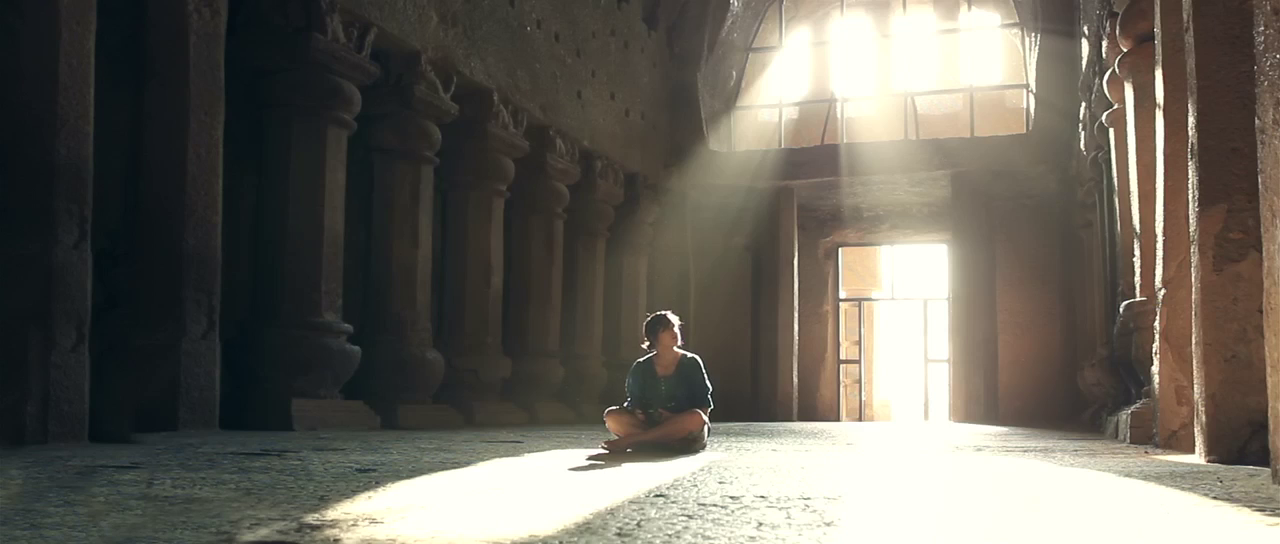When the world thinks of Indian cinema, there is a certain template that comes to mind – song and dance numbers, romance, action and melodrama. Or to put it simply, when the world thinks of Indian cinema, they think Bollywood. Why wouldn’t they – the film industry out of Mumbai is one of the most influential in the world, and commands a fan following that even Hollywood can’t boast of. Even decades before the world fell in love with Shah Rukh Khan’s effervescent charm, the great showman Raj Kapoor globalised Bollywood and painted a distinct portrait of its cinema that has stuck to date. While that sure has raised the profile of the industry, for connoisseurs of the cinematic art, it meant little. Despite the rare anomalies, Bollywood hasn’t really produced anything that can be called ‘art’. Of course, that is not to say there weren’t any – the legendary Guru Dutt wowed us with his melancholic wisdom in ‘Pyaasa’ and ‘Kaagaz Ke Phool’ and auteurs like Bimal Roy and Syam Benegal created a thriving parallel cinema culture, but once they departed, we were back to where we began.
And then, early this decade, a new cinematic culture began emerging; movies like ‘Dobhi Ghat’, ‘The Lunchbox’ and ‘Aankhon Dekhi’ came out and they were being noticed by the people. These weren’t commercial ventures; they were pure artistic endeavours and for someone who loved cinema, I was thrilled and excited. And it was amidst this new cinematic wave that I came across this tiny little indie called ‘Ship of Theseus’; a movie which marked an important milestone in my journey as a cinephile – it made me realize that we Indians could do it too! ‘Ship of Theseus’ is the very anti-thesis of what an Indian movie should be, and yet it happens to be the greatest Indian film I have ever seen.
Many of us may be familiar with the mythical tale of the legendary King Theseus of Greece, who is supposed to have founded the ancient city of Athens. The great king successfully fought several naval wars and to honor him, his people dedicated a ship to his memory. But with time, as several planks of the Ship of Theseus began to rot, one by one they were all replaced. The question then can be asked: does it still remain Theseus’ Ship? And if the rotten planks were used to build another ship, which one would be the real Ship of Theseus? A question of personal identity and the existence of consciousness, it has confounded philosophers and thinkers for centuries and is referred to as the Theseus Paradox. It is one of the most complex philosophical quagmires ever; a question to which there can never be a correct answer, and ‘Ship of Theseus’ brilliantly asks us the same question – are we comprised of distinct, separable parts or does something more exist within us that constitutes our identity?
Directed by Anand Gandhi in his feature debut, ‘Ship of Theseus’ employs three distinct narratives – of a blind Egyptian photographer who is unsatisfied with her photography following her restored vision, of a monk whose faith is at crossroads with his existence and leaving him to choose, and that of a young stockbroker who grapples with questions of ethics and morality after undergoing a kidney transplantation. Gandhi masterfully intertwines three seemingly disparate narratives involving three individuals undergoing both physical and emotional change, while posing interesting philosophical questions pertaining to identity, idealism and ethics.

The thread of a medical transplantation weaves the narratives together – Aliya has undergone an eye transplant after which she feels she lost her natural talent for photography; Maitreya is a monk and an animal rights activist who refuses to take medicines that have been tested on cruelly treated lab animals, even if it means losing his life; and Navin is a ruthless stockbroker who discovers after a kidney transplant that his new kidney might have been stolen. And in the midst of all the turmoil that these people go through, they also undergo a plethora of subconscious changes, making us wonder about our own identities, our convictions and whether we are the same person we used to be. Gandhi, while examining the subconscious changes in an individual going through a physical change, subtly alludes to time as sentient entity that can effect changes in our identity. It’s a brilliant anecdotal anomaly with regards to the science and philosophy of the human entity, and Gandhi negotiates these complex themes within a very simple premise with uncharacteristic flair and ingenuity.
There is a very distinct sense of authenticity and realism in the narrative that emotionally resonated with me. The cinematography by Pankaj Kumar is unmistakably Malick-esque, as Gandhi creates a parallel to the identity of nature and that of the conscious mind. The camera acts as a portal into the minds of the characters as we feel their emotional dissonance; we relate with their conflicts; and more importantly, we identify with them. The conversations are intellectually stimulating and emotionally engaging, but Gandhi steers clear of any explanations or resolutions – everything is as complex and obscure as life itself.
The first thought that came to my mind when I heard about this film was ‘pretentious’. With its heady title and philosophical references, it could easy have turned out be pompous and snobbish, but in reality, it is far from it; in fact, it is one of the most original and imaginative movies that has ever come out of India. Gandhi takes his inspiration from the austere and minimalist art films of Asian cinema – that of Abbas Kiarostami and Nuri Bilge Ceylan – and turns it into a universally resonant examination of humanity and the irony of faith. All the three protagonists face a moral dilemma that forces them to re-examine their ideals and beliefs, and the climax beautifully interweaves these strands together and leave us contemplating our own existence.

What constitutes our identity – it is a question that has always fascinated me. Of course, all of us are biological beings and we function thanks to the intricate mechanical structure of our body. Our thoughts and emotions are chemical imbalances in our brain and every feeling that we go through can be quantified into an arithmetic equation. Even our unique identity can be attributed to our DNA structure and gene code. But, the question remains – how much of us we truly remain if everything that physically constitutes us is intricately replaced? It is a question to which the film offers no answers, and neither can I offer any. And it is the inexplicable enigma of this question that makes ‘Ship of Thesues’ so poetically profound.
Anand Gandhi’s masterpiece flows into our soul and into conscience like a stream of visual and emotional poetry; it is life that we see unfold before our eyes, and life rarely does offer any answers. ‘Ship of Theseus’ is a poignant work of cinematic enlightenment, Malick-esque in its ambition and Keislowskian in its sheer rendering of humanity. It is a movie for the ages; an experience that I am sure will shape my beliefs and who I am in the times to come.

